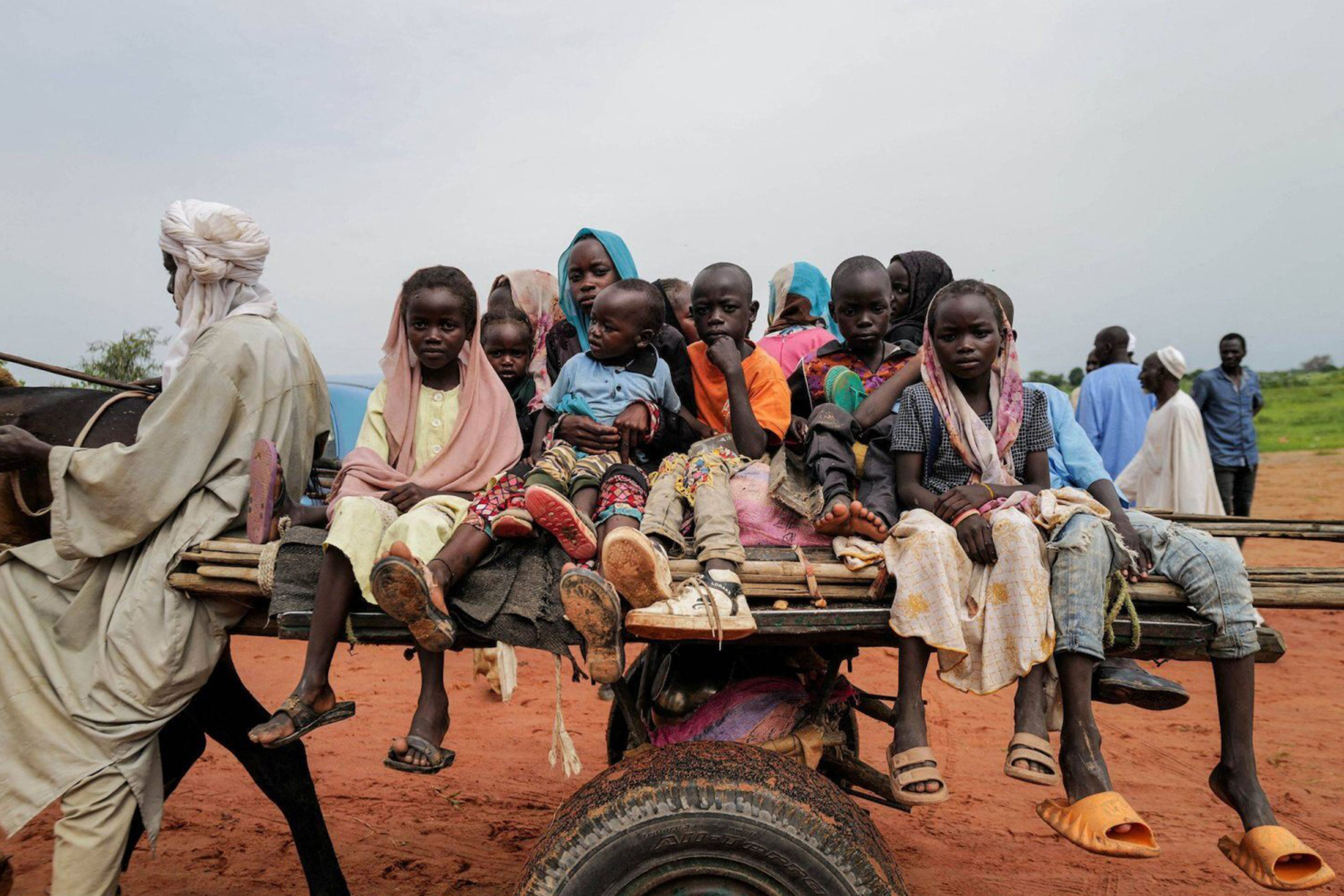We Communicate For Happy Children
 Famine in Sudan: Children cannot wait
Famine in Sudan: Children cannot wait 
“Children cannot wait for the world to debate whether famine has begun in Sudan. They urgently need help now.” (Katherine Russell, Executive Director, UNICEF, March 10, 2024)
As the war in Sudan approaches its first year, the conditions of children in the country continue to deteriorate for the worse. Ever since the outbreak of fighting, international, regional, and local organisations have repeatedly warned of catastrophic loss of life, famine, acute malnutrition, displacement, the spread of epidemics and diseases, violations, economic, financial and monetary collapse, and the horrific effects of all of these factors on children in particular.
The poor conditions of Sudanese children predate the current fighting. Already, three million children under the age of five were malnourished, a third of the population needed water, sanitation and hygiene facilities, and more than three million women and girls were at risk of gender-based violence. Since the outbreak of the war, the situation has deteriorated, and the numbers have multiplied dramatically until “the fierce war in Sudan is pushing the country towards famine and catastrophic loss of life, especially among children,” as UNICEF put it in a statement issued at the beginning of this March.
In this context, the international organisation reaffirmed that about four million children in Sudan suffer from acute malnutrition, including more than 700,000 who suffer from severe acute malnutrition and need specialised and continuous treatment to save their lives. It also warned that “acute malnutrition among young children is worsening beyond the worst expectations,” noting that “there is evidence of high rates of child mortality linked to malnutrition, especially among displaced children.” UNICEF also warned of the worsening malnutrition situation with the start of the annual dry season in the coming weeks, which denotes a dire disaster.
For its part, Doctors Without Borders estimated that “at least one child dies every two hours in the camp, which means that about 13 children lose their lives every day,” explaining that children suffering from acute malnutrition can die within 3 to 6 weeks if they do not receive treatment. The organisation indicated that about a quarter of the children examined suffer from acute malnutrition and that about 40% of children between the ages of six months and two years suffer from malnutrition.
After previous calls and warnings, the World Food Program reiterated its warning that the war in Sudan impends the world’s worst hunger crisis, explaining that there are 25 million people across Sudan, South Sudan, and Chad who are trapped in a spiral of deteriorating food security.
WFP also addressed the difficulty of delivering emergency food aid in Sudan due to the ongoing violence. According to a detailed report by UNICEF, published on March 1 of this year, there are 14 million children in Sudan in urgent need of life-saving humanitarian assistance, that is, one in every two children. The World Food Program indicated that 90% of people facing extreme hunger levels in Sudan are stuck in areas the program largely cannot reach. In this context, UNICEF warned that “communities are on the brink of famine because we (UNICEF) are prevented from reaching many children, women and families in need.” It explained that “about three-quarters of the 3.7 million children who need urgent food support live this year in 135 areas classified as difficult to reach, and that more than half of the children who suffer from severe acute malnutrition are in Darfur, Khartoum, and Kordofan, which includes large areas where assistance must be provided across conflict lines or borders.” UNICEF called on the conflict parties to work to “enable rapid, sustainable, and unhindered access to humanitarian aid, and for communications networks to function properly in order to identify and refer children at risk, and for humanitarian partners to be able to deliver urgent needs.”
Children’s health is at risk
At the health level as well, the conditions of young children in Sudan are deteriorating. According to UNICEF, 1.7 million children under the age of one lack access to important life-saving vaccines, while on the other hand, infectious diseases and epidemics such as cholera, measles, malaria, dengue fever, and acute diarrhoea are spreading. Whilst there is a severe shortage of medicines and medical supplies, the power outage led to the destruction of a large quantity of medicines. The lack of medicines, medical equipment and supplies, and access to health services lead to the spread of these diseases. Floods also constituted Sudan’s most common climatic risk, which increased the health sector’s burden.
As of August 2023, 83% of Khartoum’s hospitals were out of service. The states in the war zones, especially Khartoum, were exposed to severe damage due to the destruction of health facilities, ambulances, warehouses, medical stores and cold chains, and the lack of electricity, fuel and water, as well as attacks on health workers, according to UNICEF.
According to UNICEF estimates, the health sector lost about 600 billion Sudanese pounds (equivalent to about 900 million US dollars), or 11% of the total government budget.
The above does not cover the whole picture, as the crises of Sudanese children are so multidimensional that it has become difficult to encapsulate them in one report. Sudan is suffering from the largest child displacement crisis in the world, with children estimated to represent half of the displaced. Sudan’s schools are completely closed, leaving 19 million children of school age out of school. The rate of gross violations of children’s rights in the country is on the rise. According to UNICEF, more than 3,130 allegations were reported last year, with a severe lack of reports due to communications outages and lack of access, which means that offences are much higher than that. All of this and more calls for the necessity of immediate action for the benefit of Sudanese children and providing them with full support by all possible means, as children cannot wait.
